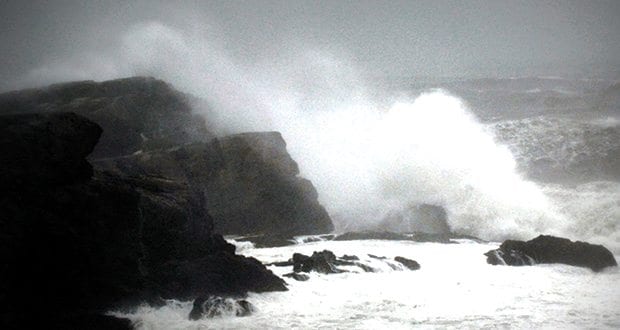
While we’re still soaking in the summer sun most people would rather not think about the freezing temperatures and snow that are sure to come once November and December roll around. But between now and then, there’s a season that many of us in Boston tend to overlook. It’s the Atlantic hurricane season, which occurs from June through November and peaks from late August through September.
Thankfully, we were spared the devastation experienced in New York and New Jersey, but the destruction caused by Hurricane Sandy last October should be a reminder that preparing for the worst-case scenario is the best decision.
At the Boston Public Health Commission, we’ve developed the Get Ready, Be Safe, Stay Healthy campaign to take some of the stress out of preparing for emergencies. It’s hard to anticipate an emergency before it happens, but it’s easy to prepare. For hurricane season, follow these simple steps to create a plan that works for you and your loved ones.
Get Ready
Start by checking your emergency supplies. Make sure you have food, drinking water, batteries, a battery-powered radio, flashlights, a fire extinguisher, a first aid kit, important paperwork, medications, a phone charger and other daily necessities on hand. Store a 3-5 day supply of non-perishable food and water (about 5 gallons per person) in an area that is not at risk of flood damage.
You can freeze perishable food items to keep them fresh for longer periods of time. Ahead of a storm, fill your vehicle’s gas tank and make arrangements with family, friends and neighbors to help one another with transportation during an emergency. Also be sure to prepare an emergency kit for your car that includes food, road flares, jumper cables, maps, tools, a first aid kit, a fire extinguisher and sleeping bags.
Be Safe
Look out for updated information about potential storms on TV, radio and social media. During a hurricane, most injuries are caused by flying glass and other debris. Stay safe indoors by avoiding windows and seeking shelter in a bathroom or basement, if necessary. To keep food safe during a power outage, open your refrigerator and freezer as little as possible. Food in an unopened fridge will stay cold for about four hours, and a full freezer can keep food at a safe temperature for up to 48 hours.
If you have to evacuate your home, take only the essential items with you, turn off your utilities and appliances and follow designated evacuation routes.
Stay Healthy
If we prepare before a hurricane and take steps to be safe when one strikes, we will be healthier and stronger as a community. Check in on your neighbors, especially the elderly, before, during and after a hurricane. You can avoid cabin fever by having games and other entertainment in your home, but remember that you might not be able to rely on electricity.
With the peak of this year’s Atlantic hurricane season on the horizon, keep these tips in mind as you prepare, and start the conversation about preparedness with your neighbors. Taking small steps to prepare year-round for emergencies will help you feel calmer and more in control when one happens. Together, we can build healthier, stronger and more resilient communities.
The Boston Medical Reserve Corps will be hosting a free lecture called “Hurricanes: The Public Health and Medical Services Response” on Sept. 26 at 6 p.m. For more details on the event and to register for free through the DelValle Institute for Emergency Preparedness, visit https://delvalle.bphc.org/.
Learn more about the Boston Public Health Commission’s Get Ready, Be Safe, Stay Healthy campaign by visiting www.readysafehealthy.org, and sign up to receive emergency alerts from the City of Boston at www.cityofboston.gov/alertboston.
S. Atyia Martin is the director of the Office of Public Health Preparedness, a division of the Boston Public Health Commission.






